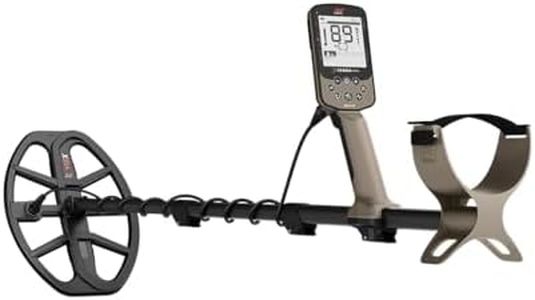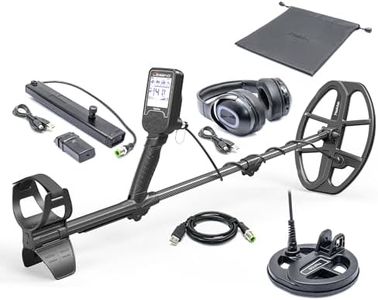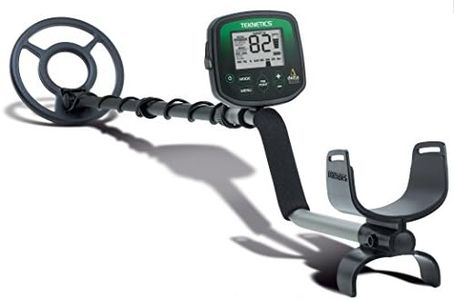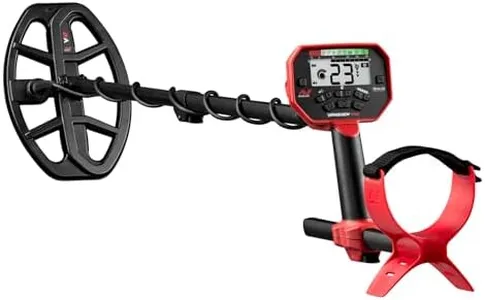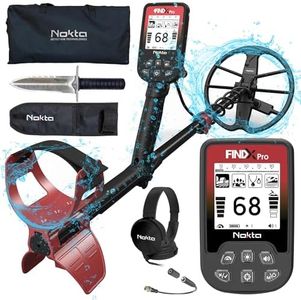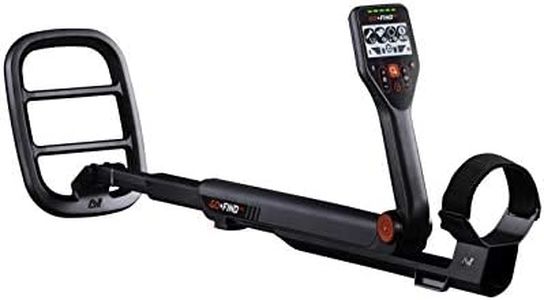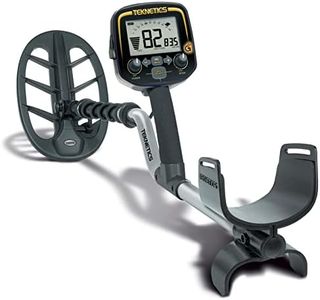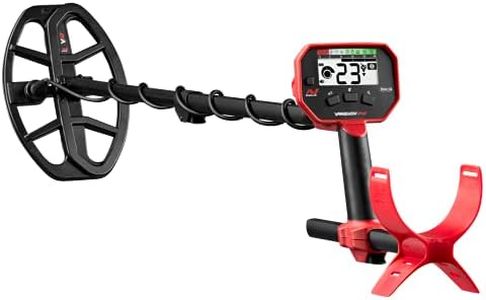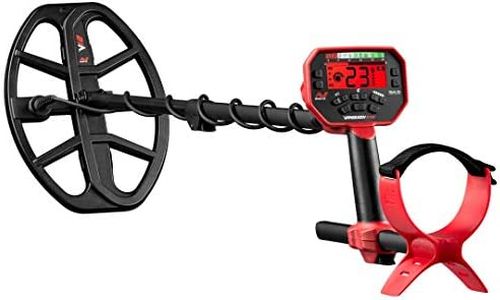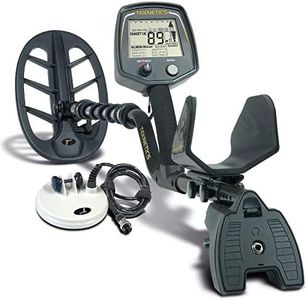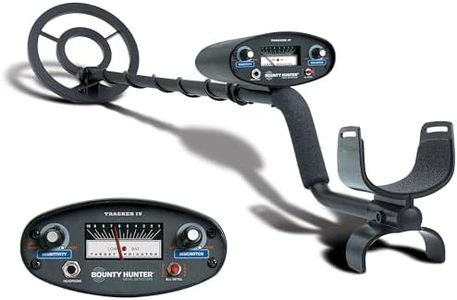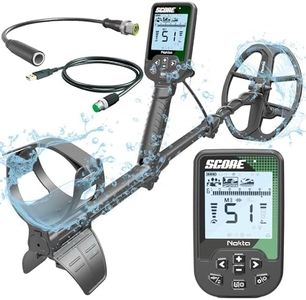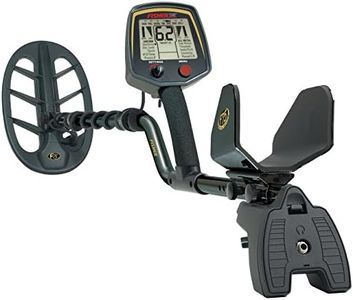We Use CookiesWe use cookies to enhance the security, performance,
functionality and for analytical and promotional activities. By continuing to browse this site you
are agreeing to our privacy policy
10 Best Beginner Metal Detector
From leading brands and best sellers available on the web.By clicking on a link to a third party's website, log data is shared with that third party.
Buying Guide for the Best Beginner Metal Detector
Choosing a beginner metal detector can be exciting but also a little overwhelming with all the options out there. The goal is to find a device that is easy for you to understand and operate, but also allows you to discover a variety of objects, from coins to interesting relics. Think about where you'll be searching (parks, beaches, forests), the kind of treasures you hope to find, and how comfortable you are with technology. Don’t focus on having every advanced feature; instead, look for a metal detector that offers a balance between user-friendliness and basic functionality, so you can learn the ropes and have fun along the way.Operating FrequencyThis spec refers to the number of times the detector sends an electromagnetic signal into the ground per second. A lower frequency (around 5-10 kHz) is generally better for finding coins and general items at greater depths, while a higher frequency (10-20 kHz or more) is more sensitive to smaller objects or gold but might have less depth. Beginners usually do well with a detector in the 6-10 kHz range, which balances depth and sensitivity, making it easier to find common targets without having to deal with complex adjustments.
DiscriminationDiscrimination helps the detector decide whether a buried object is likely trash (like bottle caps) or something more valuable (like coins). This is important because it saves you time and effort digging up useless items. Simpler detectors may have preset discrimination levels, while others let you adjust it manually. Beginners should look for easy-to-use discrimination features that help distinguish common metals, so you can focus on finding treasures without too much confusion.
Ground BalanceGround balance allows the metal detector to ignore signals from naturally occurring minerals in the soil, which can otherwise cause false alarms. There are three main types: fixed, automatic, and manual. Fixed ground balance is the easiest for beginners since it works in most average soil conditions; automatic adjusts itself as you move, which is good for varied environments; manual gives you control but requires learning how to adjust properly. For most beginners, fixed or automatic ground balance is best, especially if you mostly search in similar locations.
Weight and ErgonomicsThis refers to how heavy and comfortable the detector is to use for extended periods. A lighter and well-balanced detector is much easier to handle, especially for long sessions or younger users. For beginners, choosing a model that feels comfortable to hold and swing will help you enjoy the hobby without getting tired or frustrated quickly.
Display and ControlsThe display shows information such as target ID, battery level, and depth indication. Controls are how you adjust the settings of the machine. Easy-to-read displays with simple buttons or knobs are ideal for beginners. If you’re not used to electronic devices, start with a metal detector that offers a straightforward interface so you can focus on detecting rather than figuring out complicated menus.
Search Coil Size and TypeThe search coil sends and receives signals from the ground and comes in different sizes and types. Smaller coils (6-8 inches) are lighter and more precise, helping you find objects in trashy areas, while larger coils (10 inches or more) cover more ground and detect deeper targets but can be heavier. Beginners often find mid-size coils a good balance for general use. Also, look for waterproof coils if you want to search in wet conditions like beaches.
